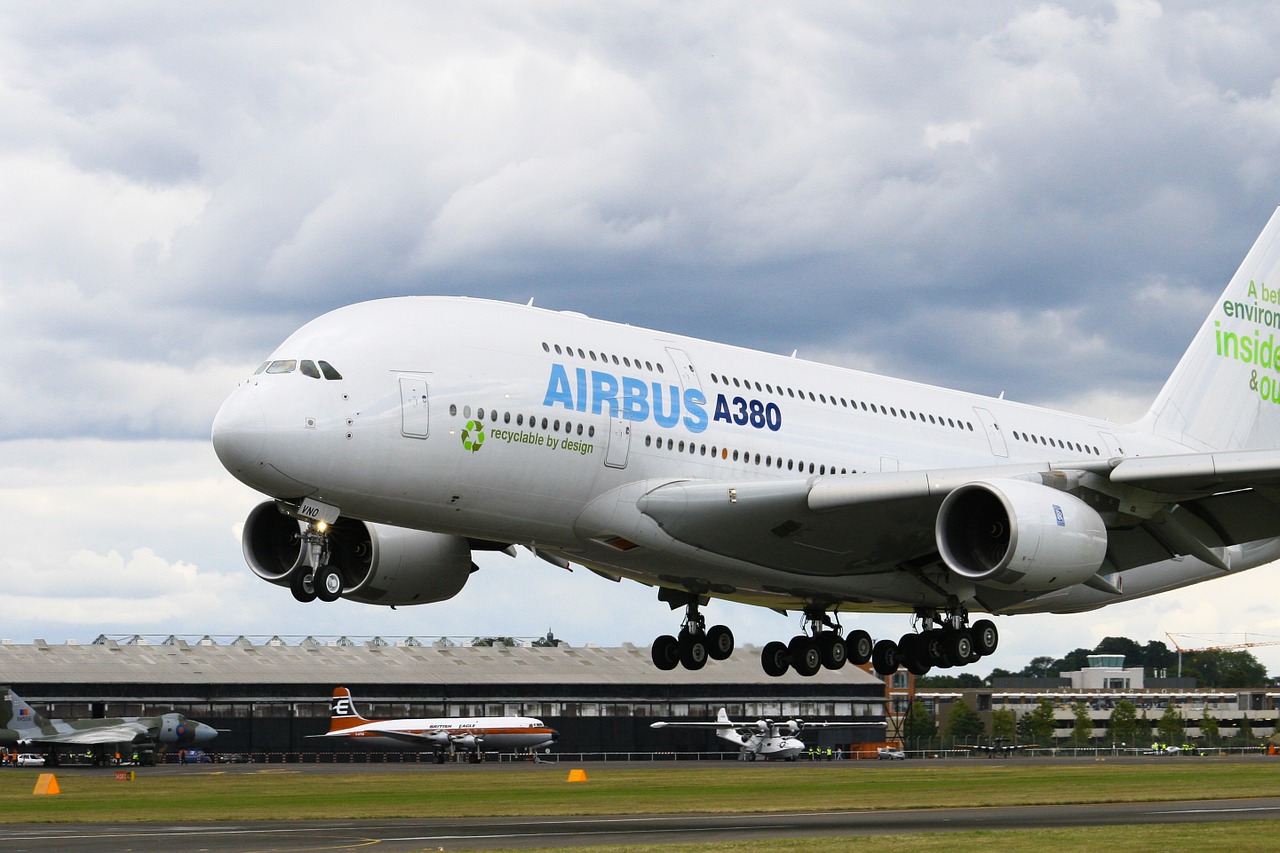
The European aviation and defense company Airbus announced in February the production stop of the world’s largest passenger jet A380. At that time, however, it was said that the jet would be „in the sky for many years“. But the end could come faster than expected. Following Lufthansa and Qatar Airways, Air France-KLM also announced its departure from the A380.
The four-engine wide-body aircraft from Airbus is to be used only until 2022, the French-Dutch airline announced on Tuesday. The reason: The ten aircraft of the Air France KLM fleet are currently difficult to use in the current market environment.
Instead, Air France-KLM relies on the smaller A220 to cut costs, save fuel and improve the environmental footprint. The airline wants to buy 60 pieces of the model and from 2021 to replace older Airbus A318 and A319. In addition, there are options on 60 more aircraft for each 150 passengers and passengers. At list prices, the order volume amounts to up to $ 11 billion.
Air France had earlier said it wanted to shut down three of its ten A380s. But she is not the first airline to say goodbye to the A380. German Lufthansa is also reducing the size of its A380 from 14 to eight. Qatar Airways wants to abolish its ten A380s by 2024.
All of this comes just twelve years after the plane’s regular launch in October 2007. But the aviation industry has not been spared the changes of the past decade. Above all, the airlines are struggling with the size of the jet, which consumes a lot of fuel. The giant jet does not fly economically when it is not fully occupied. The calculation of Airbus at the turn of the millennium that with increasing passenger numbers and larger aircraft demand, did not work.
Most of the airlines opt for medium-sized jets, which operate in contrast to the A380 and Boeing Jumbo jet 747-8 instead of four with two engines. Such jets as the Boeing 787 „Dreamliner“ and the Airbus A350 can be used profitably even on less popular routes. The A380 is a fascinating aircraft, said Lufthansa CEO Carsten Spohr: „However, it has been shown that a profitable use of the A380 is only possible on the extremely popular routes.“
Especially in Germany, the end of the A380 could be expensive – and cost several hundred million euros. From a government loan of about 942 million euros from the year 2002 for the development of the A380, the European aircraft manufacturer had not paid back more than 600 million euros, reported the newspapers of the Funke media group in March.
The world’s largest passenger jet has a range of 15,200 kilometers and is 72 meters long. Its wingspan is just under 80 meters. Planning began in the 90s. The first flight took place on April 27, 2005. Some airports had to build new terminals for the A380.
The repayment is coupled to the A380 deliveries. For each aircraft handed over to a customer, Airbus will pay back a fixed amount. Since Airbus plans to build and deliver only 17 A380 aircraft by 2021, taxpayers may remain seated on much of the loan.
Airbus had decided in mid-February, the former prestige project for lack of demand and cost reasons in 2021 set. Previously, the biggest customer Emirates had jumped. Whether Airbus has to repay any of the credit is debatable. The manufacturer had taken the view that the governments of the Airbus countries through the loans the risk of the project.
Airbus doubles profits in first half
Nevertheless, the Group is doing well economically off the A380. He more than doubled his earnings in the first half of the year and significantly strengthened his position against stumbling US competitor Boeing. Net profit rose to 1.2 billion euros in the first six months of the year, in the same period last year it was 496 million euros, as Airbus announced on Wednesday. Sales rose by 24 percent to 30.1 billion euros.
Above all, Airbus was responsible for the production increase of the A320, especially the fuel-efficient neo-series. The model is the direct competitor of the Boeing 737 Max, which is currently banned because of two serious crashes with 346 dead. As a result, the US aircraft manufacturer is currently experiencing a severe corporate crisis and recently reported the biggest quarterly loss in the company’s history from April to June.
However, Airbus boss Guillaume Faury warned of possible negative consequences of the trade dispute with the US – because US President Donald Trump regularly accuses Airbus of having competitive advantages to Boeing against the backdrop of EU subsidies. Should it come to punitive tariffs, this could hit the production of Airbus sensitive, the company warned.



